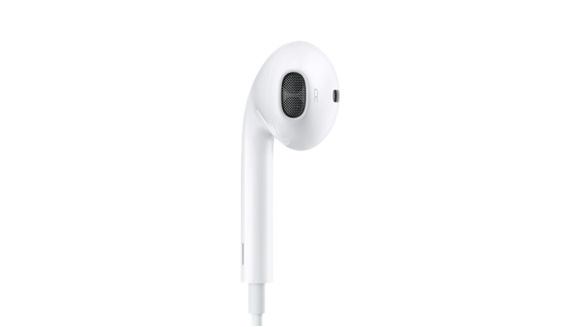Apple looking to build self-adjusting earphones for people with weird ears
Because buds don't fit perfectly... well they do for one guy

Let's face it, Apple's stock earphones have earned a bad rap down the years, and even those new, supposedly-improved, EarPods were a bit rubbish.
However, if the company follows through on this patent application for noise cancelling, self-adjusting earphones, we may be able to kiss goodbye to the era of awful buds arriving with our iPhones and iPods.
The patent, unearthed by Apple Insider details how the sound emanating from the headphones would be adjusted depending on how the well earphones fit the users ear canal.
The earphones would use electrical current, microphones and acoustic indicators to detect imperfections in the 'seal' between the bud and the ear.
All about the seal
If the seal is deemed by the earphones to be imperfect, then the balance, EQ and noise cancelling settings will be adjusted automatically.
The patent filing reads: "The quality of the seals that are formed between earbuds and a user's ears affects performance. For example, satisfactory noise cancellation can become difficult when is high-quality seal is not present.
"Poor earbud-to-ear seals can also affect audio quality in other ways. For example, left-right balance (volume) and equalization can be affected by seal quality."
Sign up for breaking news, reviews, opinion, top tech deals, and more.
Built-in earphones
However, one person who won't be too fussed by Apple's plans to improve tune quality for iPhone and iPod users is Rich Lee.
Mr Lee, as the Guardian reports, has had earphones implanted into his ears. Yes, you read that correctly.
The tiny magnets, which were put there by a body modification expert, can pick up the sound when Mr Lee plugs his music player into a chord around his neck.
"If I see a way to eliminate the need for sleep I will never sleep again," he said.
"If I can have x-ray vision through some cybernetic technology I will have it, even if it requires an ocular prosthetic that leaves me looking like a monster. If I discover a gene therapy that will give me super strength, I will augment my very DNA to do so. I refuse to be caged by my DNA," he added.
A technology journalist, writer and videographer of many magazines and websites including T3, Gadget Magazine and TechRadar.com. He specializes in applications for smartphones, tablets and handheld devices, with bylines also at The Guardian, WIRED, Trusted Reviews and Wareable. Chris is also the podcast host for The Liverpool Way. As well as tech and football, Chris is a pop-punk fan and enjoys the art of wrasslin'.
